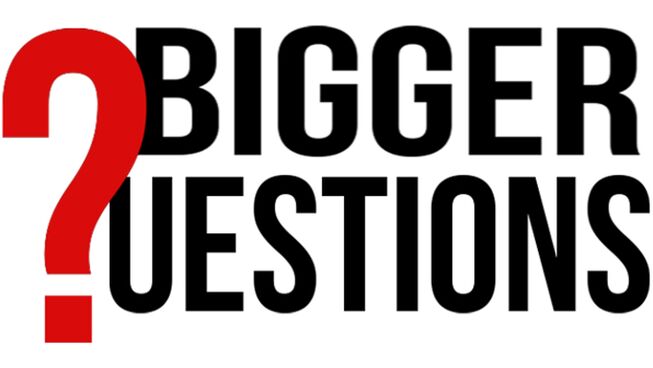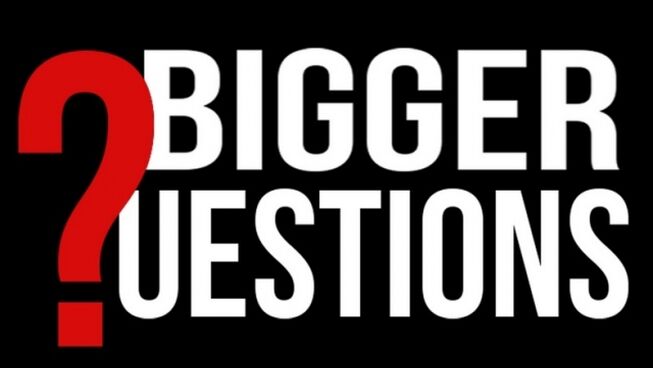Ep 96: Why would someone trust God in the face of suffering?
Why do bad things happen to good people? Is God trustworthy?
Bigger Questions host Robert Martin has an honest and authentic conversation about the difficult topic of suffering with Bryn Weightman (apprentice at Melbourne University Christian Union) and Andy Prideaux (senior staff worker with the Christian Union at Melbourne University).
Andy shares from 20 years of reflection on the Old Testament book of Job and Bryn reflects on a significant personal experience. We ask Bryn and Andy some bigger questions on suffering.
This episode was recorded live in Melbourne (at Melbourne University) in September 2017.
Help us keep asking Bigger Questions. Support the show for as little as US$1 per podcast on Patreon.
Bigger questions asked in the conversation
Smaller Questions
The smaller questions were about 'how much you know about Job? (including a question on Jobe Watson)
Andy’s reflections on Job
Andy, the book of Job, it’s a little different to Jobe Watson’s career. Tell us a bit about the book - it’s pretty big, 42 chapters long, you’ve wrestled with it for 20 years. What happens?
Now there was a difference between the biblical Job and the Essendon footballer Jobe Watson wasn’t there? The biblical Job really was blameless, whereas Jobe Watson was - well ambiguous shall we say. What was the particular challenge biblical Job had to deal with?
Andy is this why the book of Job deals with the big question of why someone would trust God in the face of suffering?
Bryn’s story
Now the big question of why someone would trust God in the face of suffering, was an important for you. Can you share your story?
Surely this tragedy would push you away from belief in God? Many people reject God because of the suffering in the world. Why wasn’t this you?
What was it about God that you knew you could trust him?
The Bible reflection
In Chapter 10 of the Old Testament book of Job, the character Job reflects on his experience of suffering and says in verses 1 and 2,
“I loathe my very life;
therefore I will give free rein to my complaint
and speak out in the bitterness of my soul.
2 I say to God: Do not declare me guilty,
but tell me what charges you have against me.
Why is Job so bitter?
Job continues and raises the problem of evil in verse 3 where he writes:
Does it please you to oppress me,
to spurn the work of your hands,
while you smile on the plans of the wicked?
So how does Job approach this problem where he asks God ‘does it please you to oppress me’? It seems like God is the source of the suffering?
The book concludes with God speaking to Job in a series of speeches in Chapters 38 to 41. What does God say to him?
The book concludes with God speaking to Job in a series of speeches in Chapters 38 to 41. What does God say to him?
Job then replies to God in Chapter 41,
Then Job replied to the Lord:
2 “I know that you can do all things;
no purpose of yours can be thwarted.
3 You asked, ‘Who is this that obscures my plans without knowledge?’
Surely I spoke of things I did not understand,
things too wonderful for me to know.
Is this an unsatisfying way of resolving the reasons for Job’s suffering?
But how is it that he can still trust God amidst his suffering?
The Big Question
So Andy and Bryn, why would someone trust God in the face of suffering?
Photo by JC Gellidon on Unsplash






